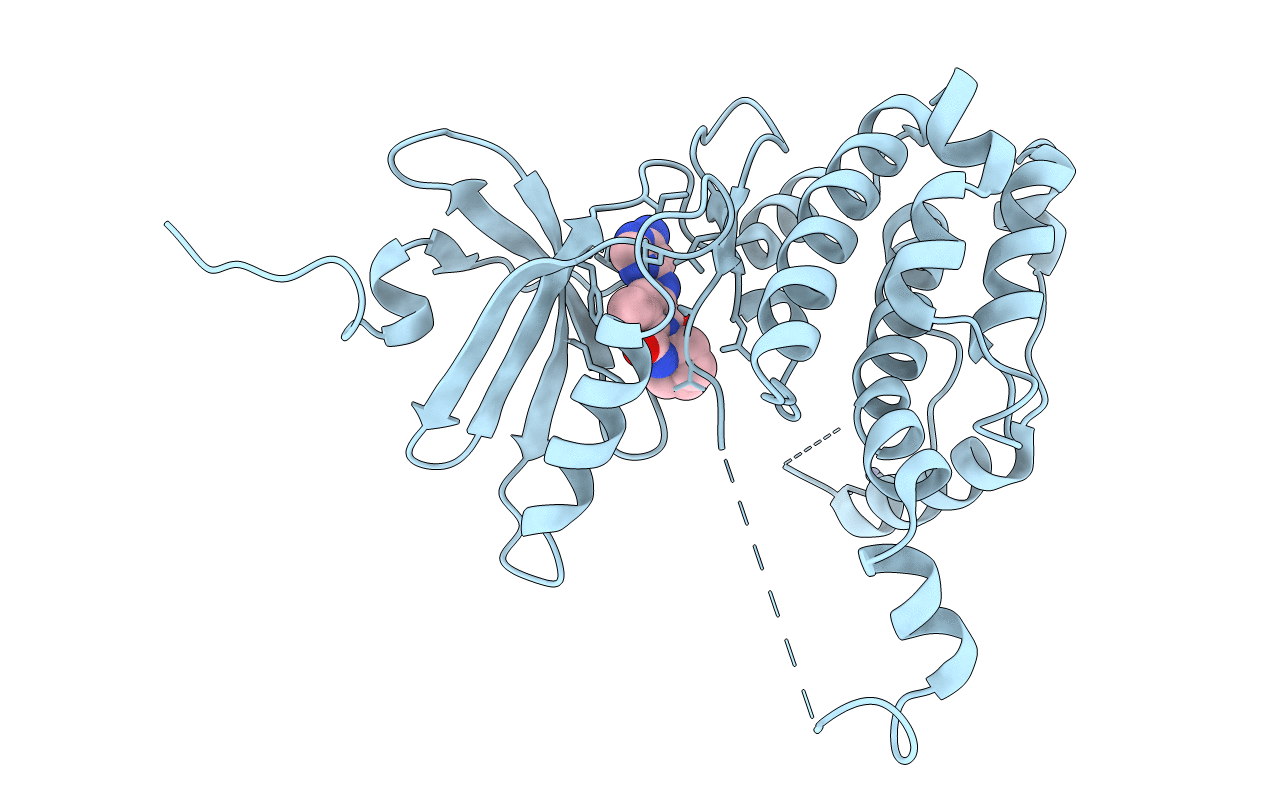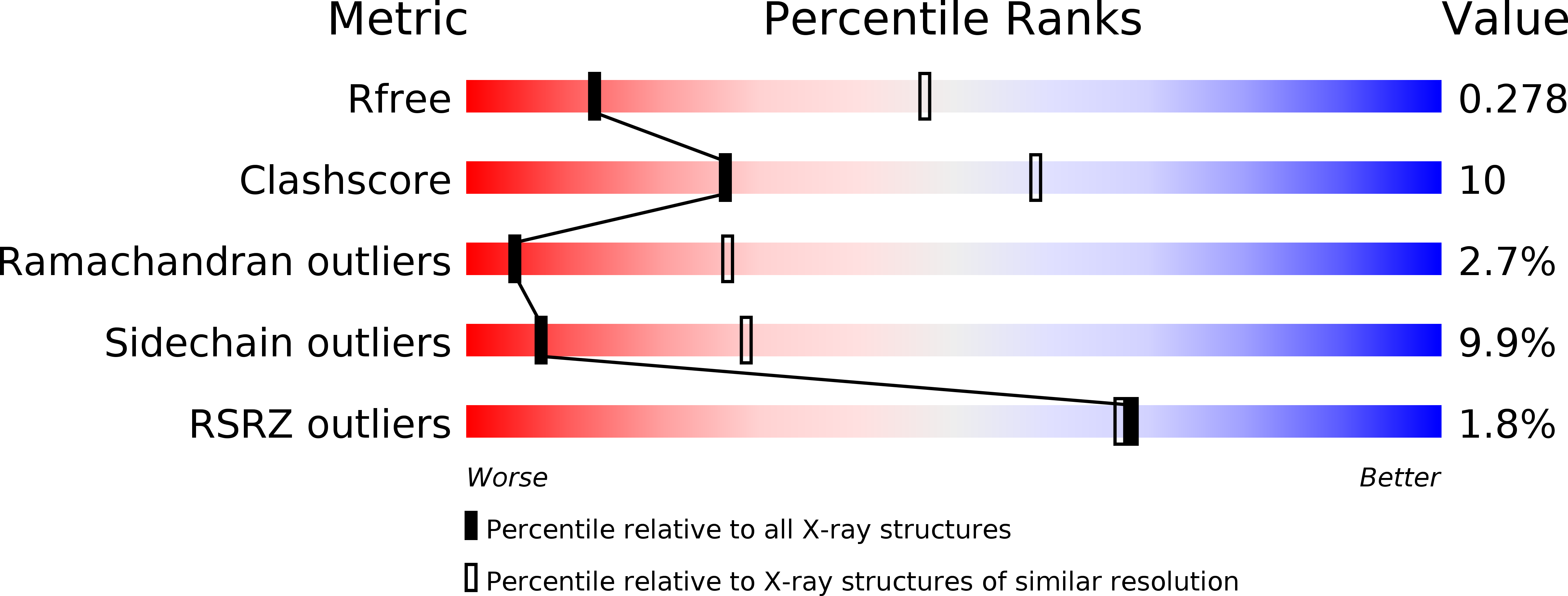
Deposition Date
2018-02-27
Release Date
2018-05-09
Last Version Date
2024-10-09
Entry Detail
PDB ID:
6CK6
Keywords:
Title:
Crystal Structure of Mnk2-D228G in complex with Inhibitor
Biological Source:
Source Organism(s):
Homo sapiens (Taxon ID: 9606)
Expression System(s):
Method Details:
Experimental Method:
Resolution:
3.32 Å
R-Value Free:
0.27
R-Value Work:
0.22
R-Value Observed:
0.22
Space Group:
P 32 2 1


